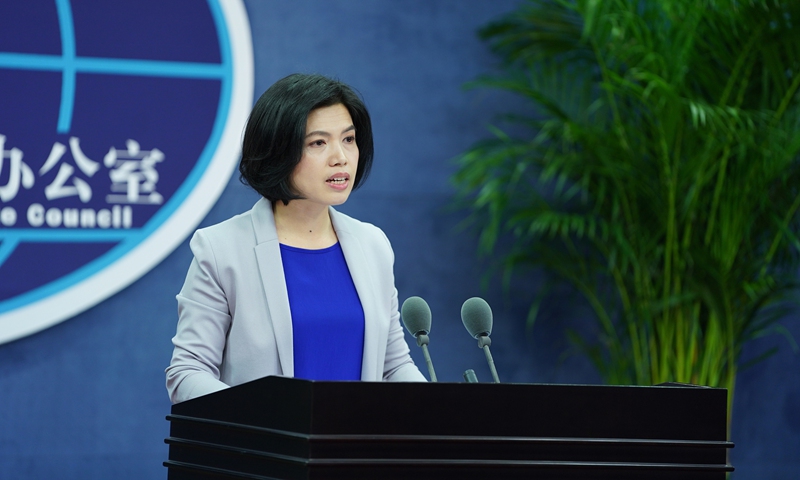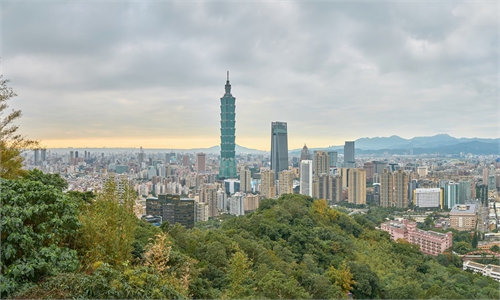
Zhu fenglian Photo: VCG
The Chinese mainland expressed a message of welcome after the Chinese Kuomintang party (KMT), the pro-reunification opposition party in China's Taiwan region, announced it was sending a delegation led by deputy chairman Andrew Hsia for a 10-day visit to the Chinese mainland from February 8 to 17.
Analysts said that Chinese mainland is expected to make a positive response to the KMT's visit, as opposing Taiwan secessionism plays an important role in easing cross-Taiwan Straits tensions. Furthermore, the resumption and expansion of cross-Straits exchanges seems to be the inevitable trend in the post-COVID-19 era, even in the face of the Democratic Progressive Party (DPP) authorities' obstruction.
Zhu Fenglian, spokesperson for the Taiwan Affairs Office of the State Council, said at a press briefing on Monday that the mainland is willing to strengthen exchanges with the KMT, consolidate and enhance mutual trust, and deepen exchanges and cooperation in various fields on the common political foundation of adhering to the 1992 Consensus and opposing Taiwan secession.
Joint efforts should be made to advance relations between the Communist Party of China and the KMT and relations across the Taiwan Straits, safeguard peace and stability across the Straits, and improve the interests and well-being of compatriots on both sides of the Straits, Zhu noted.
The KMT delegation will hold talks with Song Tao, head of the Taiwan Affairs Office in Beijing, the KMT said in a statement on Monday. As long as the Taiwan authorities can recognize the 1992 Consensus, which embodies the one-China principle, cross-Straits consultations and negotiations will resume, Song said at a seminar held Sunday, according to the Xinhua News Agency.
The KMT also claimed the visit would be an "apolitical" one, focusing on agricultural and fishery products, people's livelihood and other economic issues. The delegation is also expected to meet with Taiwan businesspeople during trips to other mainland cities.
Zhang Wensheng, deputy dean of the Taiwan Research Institute at Xiamen University, told the Global Times that the DPP's restrictions on cross-Straits exchanges and "anti-mainland" practices on the island caused strong discontent among the public. By visiting the mainland, the KMT hopes to send a message to Taiwan society that the DPP can't ease cross-Straits tensions, while the KMT can.
The DPP authorities refuse to accept the one-China principle, so they have no way of communicating with the mainland, which actually gives the KMT an opportunity to make voters think about what to choose: choosing to keep cross-Strait relations tense and even dangerous, or choosing peace and stability, Zhang said.
Chao Chun-shan, a member of Hsia's delegation and a former top consultant of Taiwan regional leader Ma Ying-jeou, said on Monday that the KMT will "do the right things for cross-Straits relations," Taiwan media reported.
He said that the delegation wants to convey a message that Taiwan people are not all provocative secessionists like the DPP, as they want peace, not war. He also called on the DPP to hold dialogue with the mainland to reduce misunderstandings, as zero contact results in zero benefits for Taiwan.
"The KMT generally recognizes the 1992 consensus, is opposed to Taiwan secession, and will play a role in easing tensions," said Wang Jianmin, a senior cross-Straits expert at Minnan Normal University in Fujian Province.
"The mainland may give it a positive response," Wang told the Global Times on Monday.
Cross-Straits exchanges are recovering in the post-epidemic era, and it is likely that there will be an expansion of cross-Straits people-to-people exchanges, trade and tourism, Wang said.


